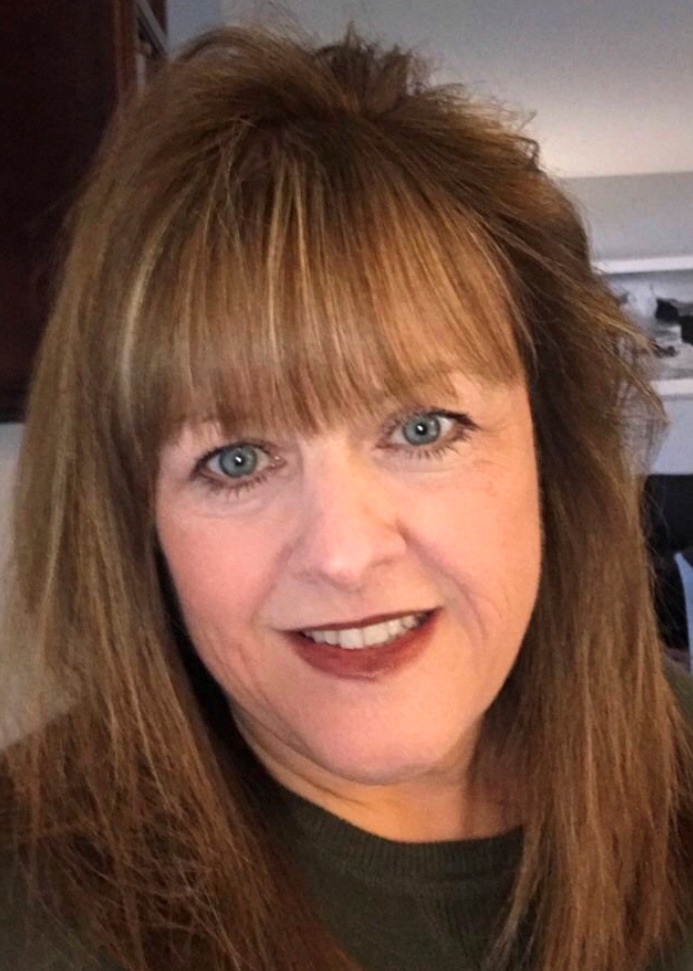
Hi - I'm Deb Norton.
If we decide to work together, I will spend a lot of time getting to know you and listening to your story, what concerns you and what you need help managing. Finding a therapist shouldn’t be hit or miss from a listing somewhere online. You should have more input than a couple of paragraphs about someone you’re choosing to tell your life story to and trust to help you with your emotional well-being. You deserve to know who I am and what my background is before you decide to work with me.
Undergraduate & Graduate Degrees
My Bachelor’s Degree is in Child Psychology and Development with an emphasis on Adolescent Psychology from the University of Minnesota/Twin Cities, a top ten nationally ranked psychology program.
My Master’s Degree is in Counseling from National Louis University with a Graduate Certificate in Substance Abuse Counseling.
Work Experience
I have worked with Adults & Adolescents in a variety of settings including:
- Runaway/Crisis Shelter
- Transitional Shelter Facilities
- Inner City Youth League
- Welfare-to-Work Programs
- In-Patient Adult Substance Abuse/Dual Disorders
- Out-Patient Adult Substance Abuse
- Out-Patient Adolescent Substance Abuse
- Juvenile Felony Offender Shelter Facilities
- Adult Corrections/County Prison System
- County-Based Human Services Programs
- Federally Funded Human Services Programs
- Two Clinical Private Practices (Illinois & Pennsylvania)

- In-Patient Adult Substance Abuse Clinical Staff; Dual Disorders hospital outside of Philadelphia where the majority of clients came from the inner city
- In-Patient Adult Dual Disorders Clinical Coordinator Back-Up; provided staff support and back-up to unit supervisors for coordination of service throughout the hospital
- In-Patient Adult Dual Disorders Psychoeducation Clinical Staff; Provided educational seminars for substance abuse patients with co-occurring mental health issues
- In-Patient Dual Disorders Back-Up Social Work Staff; provided regular support to Social Work Department to find placements and services for discharging clients
- In-Patient Adult Dual Disorders Psychoeducation Clinical Staff; whole-hospital impromptu clinical support for individual, group and family therapies in the absence of departmental staff
- Out-Patient Adult Substance Abuse Clinical Staff
- Out-Patient Adolescent Substance Abuse Clinical Staff
- Men’s Domestic Violence Counseling: The only woman to successfully run this program in DuPage County, Illinois
- Welfare-to-Work Counseling; Federal pilot programs for Welfare recipients to complete their educations and return to the work force
- Men’s Incarceration Transition Counseling; Pre-release counseling of male inmates to locate housing, employment, and counseling services upon release
- Women’s Incarceration Transition Counseling; Pre-release counseling of female inmates to locate housing, employment, childcare and counseling services upon release
Clinical Private Practice - Current
- Out-patient clinical mental health counseling focusing on Cognitive-Behavioral Therapy (CBT)
- Diagnosis of Adult & Adolescents; either to confirm/deny a previous diagnosis or uncover an underlying mental health disorder
- Treatment planning and implementation on a case-by-case basis, tailored for the client
- Coordination of care for clients who have co-occurring medical and/or psychiatric needs
- Referral services to professional colleagues and medical teams for issues outside of my expertise
- Adult Therapy; Therapy for depression, anxiety and bipolar disorders including treatment resistant types, suicide and self-harm, substance abuse issues with a focus on those concerned about their relationship with alcohol, managing work/life balance, parenting, relationships, blended families, ADHD and LGBTQ concerns.
- Adolescent & Young Adult Therapy; Including academic over and underachievement, coordination of 504 & IEP plans for students with ADHD, clinical diagnosis management of depression, anxiety, bipolar including treatment resistant types, suicide and self-harm, relationship issues, LGBTQ, parental divorce, blended families, substance abuse issues, maturational instability and growth/individuation struggles
- Couples Therapy/Gottman Method; level 2 trained in Gottman theory for couple’s therapy
- Life Coaching Athletes from High School to International Competition; working with teens and young adults who are struggling with their athletic game. Using CBT and principles of sports psychology, I help clients elevate their game, regain their passion to do their sport and change their perspective whereby eliminating second-guessing and building confidence in their athletic skills and abilities.

Credentials & Professional Affiliations
- Licensed Clinical Professional Counselor (LCPC) in Illinois
- Former Licensed Professional Counselor (LPC) in Illinois and Pennsylvania
- Member of the National Board of Certified Counselors (NBCC)
- Member of the American Counseling Association (ACA)
- Member of the Illinois Counseling Association (ICA)
- Member of the Illinois Mental Health Counseling Association (IMHCA)
- Founder and Former President of Lake County Behavioral Health Alliance (LCBHA)
- An Educational Non-Profit Networking Group for Mental Health Professionals in Lake County Illinois
- BS Adolescent Psychology
MS Counseling
Graduate Certificate Substance Abuse

Continuing Education
My LCPC requires 30 credits of continuing education every two years. And my NCC requires 100 credits of continuing education every five years.
Courses Include
- Adolescent Girls in Crisis
- Adolescent Therapy
- Anatomy of Change
- Anxiety, Sleep and the Brain
- Attention Deficit Hyperactivity Disorder (ADHD)
- Bipolar Disorder
- Clinical Supervision
- Cognitive Behavioral Therapy
- Crisis Intervention
- Treating Resistant Depression
- Diagnosing & Treating Mental Health Disorders/DSM5
- Dialectical Behavioral Therapy (DBT)
- Distance Counseling
- Ethical Decision Making in Mental Health
- Gottman Couples Counseling – Levels 1 & 2
- Gottman The Art & Science of Love
- Gut Brain Connection
- HIPAA Compliance
- Human Behavior/The Anatomy of Human Change
- LGBTQ Lifetime Developmental Approach
- Mindfulness/DBT Therapy
- Motivational Interviewing
- Opioid Recovery and Dual Diagnosis
- Panic Disorders
- Personality Disorders
- Practice Management
- Psychopharmacology
- Resolving Trauma Without Drama
- Risk Management
- Substance Abuse – Street Drugs and Alcohol
- Suicide & Self-Harm
- Trauma Recovery
- Trust & Betrayal in Relationships

My Therapeutic Approach
The bulk of my approach is focused on Cognitive-Behavioral Therapy (CBT). CBT is a combination of two psychological theories: Cognitive and Behavioral. CBT suggests that our feelings and behaviors are caused by our thoughts rather than something external such as people or events. We can, therefore, affect changes in the ways we feel and behave using CBT as an approach to therapy!
CBT is a mental health intervention that focuses on changing negative thoughts, developing appropriate coping tools, challenging untrue beliefs and negative attitudes, altering unproductive behaviors and improving the ability to self-regulate emotions.
- CBT is results-driven; clients learn how to think differently in their daily lives.
- CBT has been found to effect changes in clients much faster than other forms of therapy.
- CBT is a collaborative approach based upon the foundation of a good therapeutic alliance.
- CBT is structured, directive and uses homework to aid clients in affecting desired changes.
Originally designed to treat depression, CBT is now an evidenced-based approach that helps the highest number of mental health conditions, including anxiety and substance abuse issues.
Other Approaches
Like most therapists, I draw from more than one theory. Although CBT is the foundation of my approach, I also use some Client-Centered Therapy along with Motivational Interviewing, Life Coaching Techniques and Gottman for couples therapy. And I frequently draw from my Christian beliefs and find that Spirituality plays a major role in helping clients find their true selves.
Motivational Interviewing attempts to move an individual away from a state of indecision or uncertainty and towards finding motivation to making positive decisions and accomplishing established goals. It couples well with the directional basis of CBT and the goal-orientation of Life Coaching.
Client Centered Therapy uses highly attuned listening skills and a deep empathic response to encourage personal growth in clients by showing them that they have the ability to help themselves. Reflection and clarification are used to aid the client in discovering and understanding their true feelings. Like CBT, it’s up to the client to determine what changes need to occur in their lives.
Life Coaching is a non-therapeutic technique used to help people restructure a particular aspect of their lives to make improvements. Examples include improving their career process or getting better results in an athletic sport. It’s a highly collaborative, goal oriented, supportive in the process, and it holds a level of accountability that is not inherent in psychotherapy.
Gottman Couples Counseling – Named after John & Julie Gottman who conducted over 40 years of research into how we live, struggle, wound, heal and repair our relationships. The foundation of their research is outlined in their best selling book “The Seven Principles for Making Marriage Work.”

What is most important to you?
No matter the theoretical approach, it’s important to me that my clients know that:
- We are a team – we treatment plan together and their voice is absolutely the most important voice in the room.
- I care that my clients learn new tools, grow from this experience and ultimately feel and function better.
- My door is always open to clients who wish to return to therapy, no matter how long it’s been – I’m here and I’m listening!

